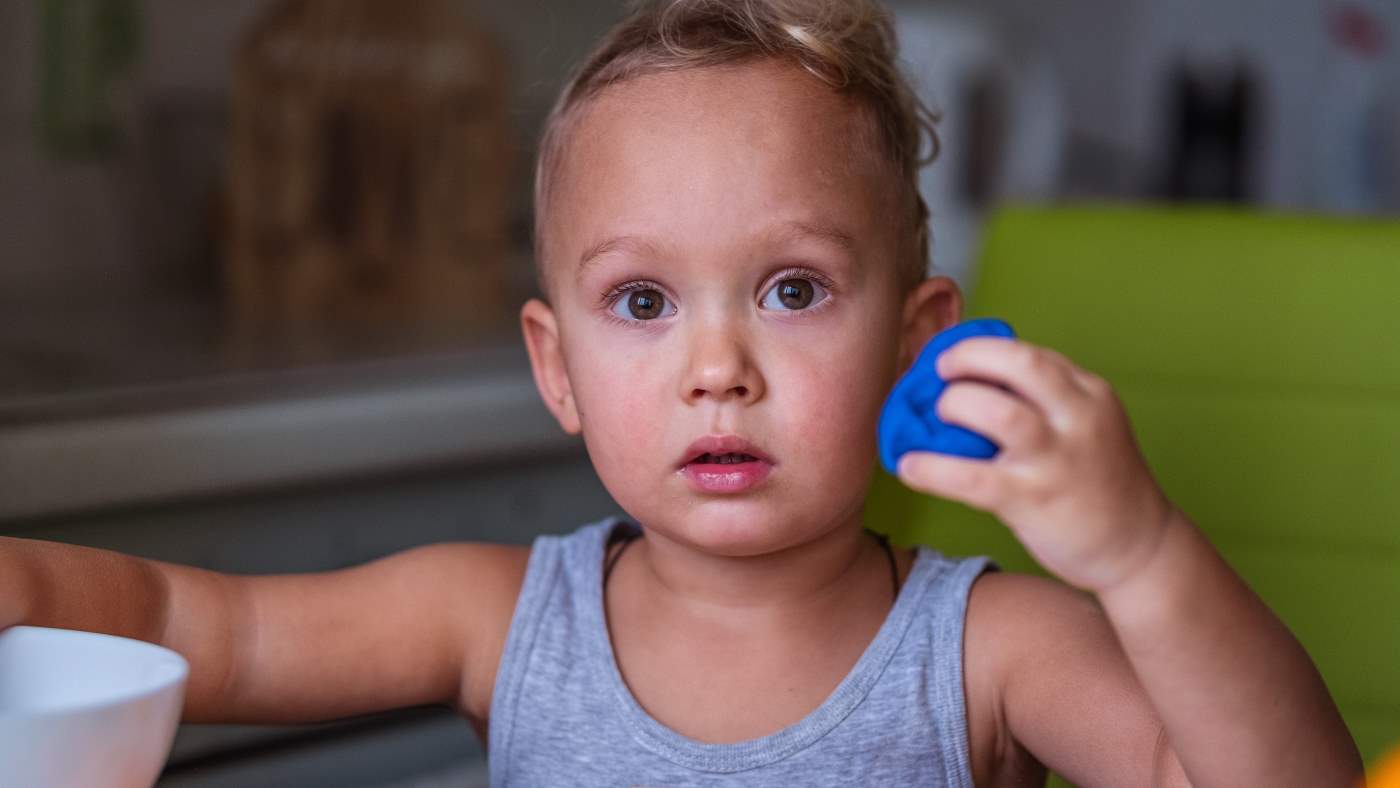Questions, questions, questions – why so many?

Questions are a sure sign that your toddler’s language and cognitive skills are growing. They’re making loads of connections in their brain and wanting to discover more about the world around them. Questions are very simply your toddler wanting to gather information.[1]
Research tells us that there are three types of question[2,3]
Social questions. They come from your toddler thinking about their needs, like, “Where me going?” “Where my teddy?” Social questions look for confirmation and may emerge from a desire to connect and engage with you.[3]
Cognitive questions. These are about their world and about themselves. Your toddler strives for new information when asking cognitive questions. For example, "What's that?” This form of question will become more common as the use of ‘why?’, ‘when?’ and ‘how?’ are developed.
Operational questions. A request for help or permission. These may come a little later in your toddler’s development because a child who asks these questions will typically want more details on, say, how to carry out an activity.[3]
Your toddler may ask the same question over and over again; this is because they are seeking more information and don’t yet have the skills to word what they want to say.
Children need to interact with others to find out what they don’t yet know, and they rely on you as an expert.[1] Although this might be exhausting at times, your toddler is trying to make sense of something that is important to them in that moment.
If you can’t answer them straight away, because let’s be honest, we are all human and you may be doing twelve other things, acknowledge their question by saying something like, “That’s a great question! You have a think, and I’ll have a think too while I pop this shopping away. We can chat about it after.”
And did you know, questions aren’t always verbal? Watching your toddler's actions may show you how questioning and thought processes happen without words.
There may be times when you see your toddler pondering over a problem. Even though they’re not thinking out loud, they may be questioning, “What will happen if I move that block there?” or “Where shall I put down my bucket?”
If you have time, slowly join in with their play and attune your mind with theirs. You might ‘hear’ the questions they ask while they explore and see how they solve their own problems.
Watch as they make meaning through the responses to their play, these moments of action often create a shared narrative.[4]
If you notice them looking from one item to another, or hear sounds or exclamations like a sigh, “oooh,” or “huh,”, perhaps respond by smiling and copying and their sounds. You could also describe what is happening and what your toddler is doing. They might reflect on their actions as a result of this and without even speaking, explore their own curiosities and questions.
References:
[1] M. M. Chouinard., P.L. Harris., M.P. Maratsos. (2007) Children's Questions: A Mechanism for Cognitive Development. Monographs of the Society for Research in Child Development, Vol. 72, No. 1.
[2] T.Č. Glišić. (2017) Why Do Children Ask Questions – New Classification of Preschool Children’s Questions University of Banja Luka, Faculty of Philosophy.
[3] S. Briggs. (2020) The Importance of Kids Asking Questions. InformED Open College.
[4] A. Hackett. (2021) More-Than-Human Literacies in Early Childhood. Bloomsbury Academic.